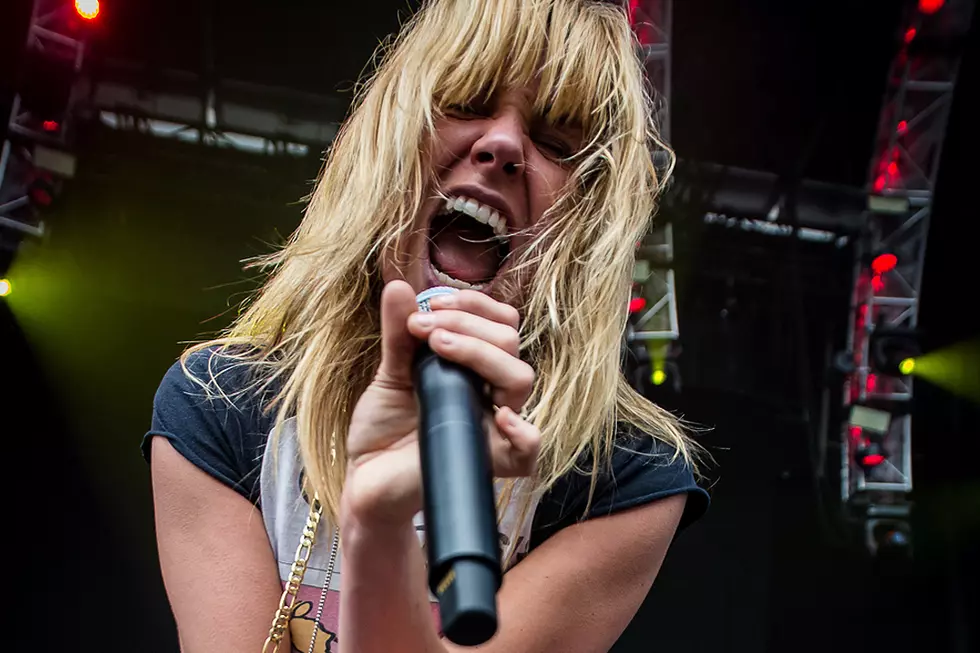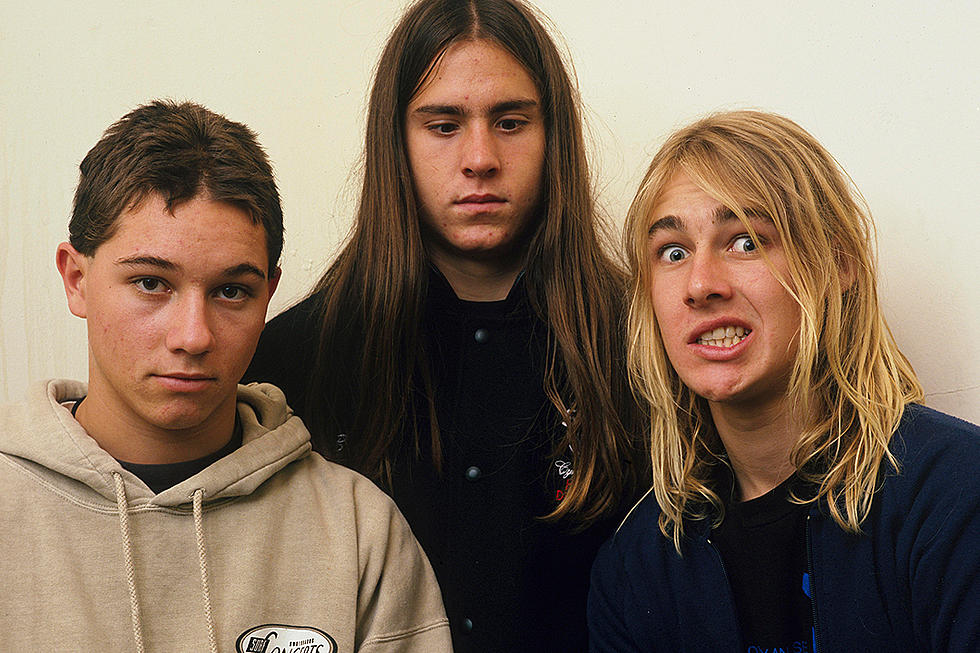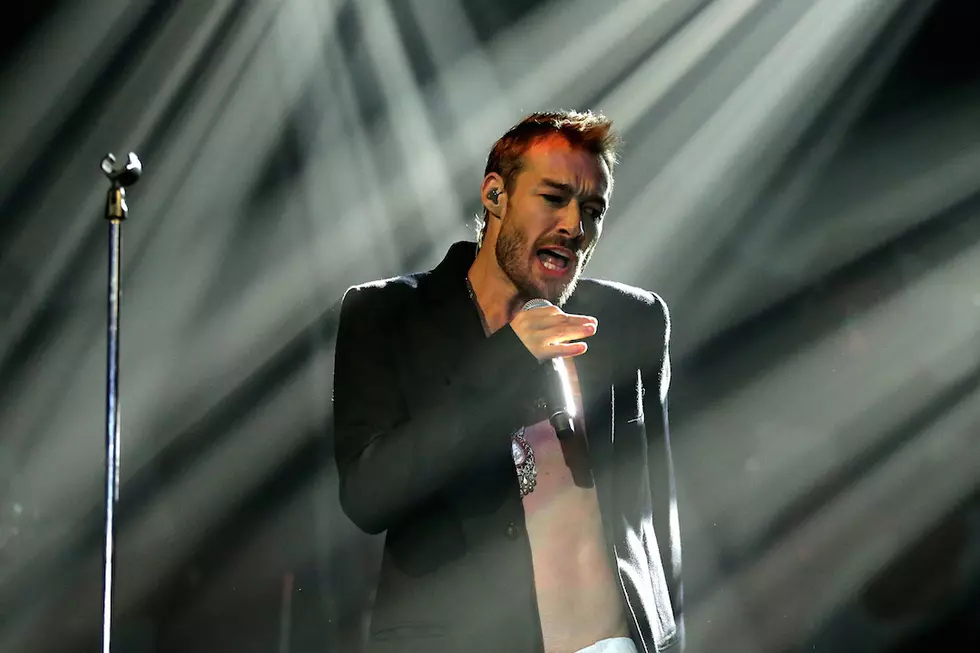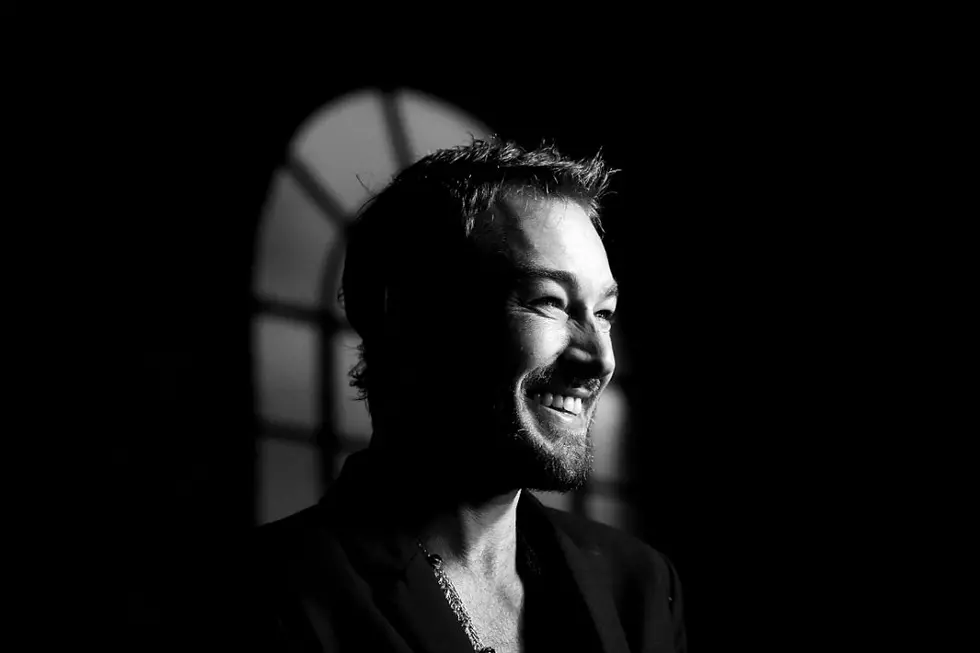
Daniel Johns: ‘I’m Not Going to Let People’s Expectations Get in the Way of My Vision’
On May 25, 2011, Silverchair shared the unfortunate, though not all-that-surprising, news that they were going into an "indefinite hibernation." Since calling it quits, frontman Daniel Johns has headed off in his own direction, one that has culminated in the recent release of his debut solo LP, Talk.
While Talk has garnered both praise and criticism from longtime fans, it serves as a clear and profound statement from Johns: He is determined to experiment, evolve and move forward as an artist, regardless of what the world might expect of him.
Calling from Australia, Johns recently chatted with us about his new album, why he probably won't be scoring many films anytime soon, and what the future holds for him as a solo artist. Check out our exclusive conversation below, and stay tuned for the second part of our interview as Johns reflects on the 20th anniversary of Silverchair's debut, Frogstomp, and shares his honest opinion about a potential reunion for the band.
Are you surprised at how polarizing Talk seems to be with some of your fans?
Nah, not really. [Laughs] Back when I was in Silverchair, pretty much every record we released polarized some people who were into the band. I guess Talk is an even more significant leap stylistically, but I was kind of prepared. It wasn’t something that ever bothered me, though. I’ve always felt like, in my career, I want to try everything musically that I want to try. I’m not going to let people’s expectations of what I should or shouldn’t be doing get in the way of my vision, you know?
You’re right, with each Silverchair album, you guys kind of redefined yourselves as a band. With Talk, you’re definitely redefining yourself as an artist, as Daniel Johns. Is the sound on this album a clear representation of where you’re at today, or is it more just an experiment with a new musical direction that you wanted to try?
It’s definitely where I’m at. It’s been something that I’ve been interested in doing and I'm settling into it. I started getting into electronic music a really long time ago, but those sounds are incredibly hard to incorporate into a rock and roll band. For a really long time, I think going back to 2000, I’ve had this craving to do something really electronic. Once I felt like Silverchair did its dash and had its time, I just went into the studio for a long time and acquired a bunch of toys and tried to get my head around the genre and how to use a lot of stuff. I started doing a lot of noisy, electronic experiments at first and as I got better and honed my craft a bit, I started inviting producers to my house to help make it feel a little bit more like songs rather than just 45 minutes of electronic noise. [Laughs]
With an interest in electronic music for the last 15 years, how long did it take you to start putting your experiments and noise together to become the songs on Talk?
After Silverchair ran its course, I spent about two years just f---ing around with sounds and stuff, but the Talk sessions -- just the songs that ended up on the record -- probably took about two or three years, on and off. There are hundreds of songs that I made, so it’s kind of hard to tell exactly what the timeframe was. It wasn’t everyday; I did most of the work at home in my lounge room and I was working on it intimately, along with a lot of other stuff at the same time.
During the process of putting together all these songs, did you ever think to yourself, “Nah, I’m not feeling this. I’m going to bail”?
No. I never did. I always knew what I wanted it to be. I had a lot of times where I didn’t know how long I wanted it to be. [Laughs] There was a moment where I wanted it to be a triple record, then a double, and eventually I got it down to a single record. There was a moment when I felt really inspired and I was kind of talking to my management and I told them I really didn’t want to stop. I wanted to keep writing and I wanted to see how much I could push out. It was my management that said, “No, rein it in. You’ve got a record. It’s time to stop.”
Looking back on that process, now that Talk is out, what’s your proudest moment on this record?
To be honest, the proudest moment was when I figured out what songs to get rid of. That was really hard for me. It’s such a cliche, but I had a bunch of songs that were as important as a child to me, you know? Once I got it down from 100 songs to about 30, I was pretty happy, and then once I had it down to the 15 that ended up on Talk I was really happy. It felt like I picked a really good representation of the years of writing that I had done. I feel like I wanted it to be almost like an electronic R&B album, I wanted it to go into a multitude of musical directions but still feel like it’s on the same, one record.
So those 85 songs that didn’t make the cut, do you have plans for 'em?
I don’t know. I always think about that, but when it comes time to write a new record, I always want it to be a representation of the time, rather than a reworking of something that I've done in the past. Occasionally, if I really love something, I’ll work on it until it sounds like it fits. [Laughs] But for the most part, I think there might be a melody that I might rework, but not much more than that. I like the idea that when I start writing a record, it feels brand new and not just a reworking of old stuff.
When a new album comes out, there are those artists who sit back, crack a beer and reflect and dwell on the process that led to its release; there are others who close the book the day it hits the streets and they’re ready to move on to the next project. Now that Talk is out, where do you land?
When I’m writing a record, that’s the time when I sit back and reflect. The whole writing process, I’m going through everything back-to-back and I can make changes to arrangements and finesse melodies. The day it was released, literally that day, I haven’t wanted to hear it since. I’ve listened to it fucking hundreds of times and I worked really hard on it, but now that it’s out, I’m not allowed to make any changes, so I’ll just move on.
Yeah, there’s not much you can do now.
[Laughs] Exactly. This is what it is, man!
Shifting gears a bit, a few years ago you were working on the soundtrack to a short film, and you’ve said in past interviews that you’re interested in scoring movies. Is that still something that you want to do?
Yeah, I really like the idea of cinematic music. I think being able to draw inspiration from other people’s visuals and compositions is something that’s really appealing to me. I’ve always set paintings in front of my piano or my synth whenever I write songs; I find the idea of looking at a visual really inspiring for some reason, probably more so than hearing someone else’s record. But, I’ve got to say, the more I’ve spoken to people about scoring films and the whole process in the movie industry, it does seem like a pretty enormous pain in the ass at times. [Laughs]
Even more so than the music industry?
Yeah, from what I’ve been told -- it’s not really up to you at the end, you know? You can only make suggestions, and I’m a bit of a control freak so I think that part of it would drive me a bit crazy. But, the beauty of that short film you mentioned -- well, I wrote three hours of music for the supposed short film, so it didn’t feel like a short film -- but the beauty of it was it was a 50/50 collaboration with the film writer, so I had control of it. I enjoyed that process, being able to kind of write some narrative around songs and vice versa rather than just being given a finished thing and throwing ideas back at the director and the director saying, "No." I think that would make me crazy.
With Talk out across the globe, what’s on the horizon for you? Are you coming to the states? Do you have plans for your next full-length album?
To be honest, I don’t even know if I have a record deal. [Laughs] I honestly don’t know how this is working. I was surprised when my manager said I have some American interviews, so there are no plans at the moment. When I was writing this record, I was always of the opinion that I was trying to go into my Sgt. Pepper’s phase of my career and just become a studio artist for the next 10 or 20 years and never really tour, so I’m even kind of shocked I have a live show in Sydney this week. [Laughs] This whole thing is not really going according to plan, so anything can happen. I’m a lot more open to the idea of playing shows now, obviously, but if something were to happen over there in the states ... I’d love to bring the show over there if it made any sense. I don’t know if people there are even interested in what I do anymore.
Well, I am! I’ll come.
There you go. There’s one ticket sold!
You can pick up Daniel Johns' brand-new solo LP, Talk, here, and make sure to stay current with everything happening in his world at his official website. Keep your fingers crossed that he and his live show will find their way to the states!
Listen to Daniel Johns' "Going on 16"
More From Diffuser.fm









